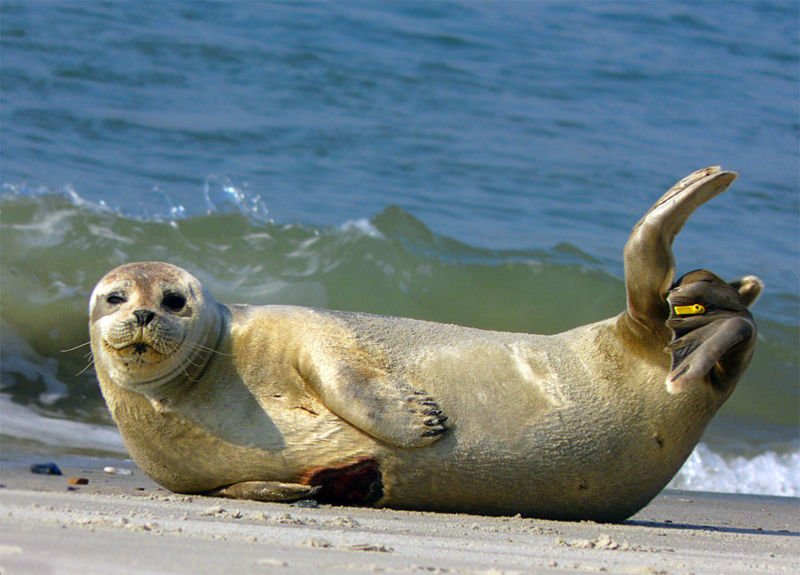|
TRANSLATIONS
Qinggi was the father of Raven, therefore he must have been an Eagle (while his grandfather also was a Raven). His mother was Floodtide Woman, a Raven because she was married to an Eagle, and because her son was a Raven. His uncle was Beaver, presumably married to a Raven, i.e. Beaver was an Eagle. When Raven early one day was sitting in a canoe outside the house of Qinggi it must have been the shore of the Raven village - Qinggi, the Eagle, lived in the village of his wife. It was a Harbour-seal canoe:
(Phoca vitulina, Harbour Seal. Wikipedia.)
The hat belonged to his uncle, i.e. the hat was the hat of an Eagle. Raven was dressed like an Eagle. The seafoam swirling around on the crown ought to represent the white moon. Therefore the hat of the Eagle could have been depicted as ragi (in another style of art):
Raven himself had no penis, therefore he took his uncles 'hat'. The sea cucumbers we now can understand better and we can reread: ... Raven, the demiurge and trickster, was able to escape from the rising waters by 'flying to the highest cloud in the sky, and hanging on there by his bill'. When the waters had subsided, he came back down to earth and arrived at the house of an old woman who was mistress of the tides. She could not believe her eyes when she saw that he had sea-urchins to eat, because at that time the tide was always high and sea-produce could never be harvested since the waves never went back. Angered by his hostess's incredulity, Raven stuck the spikes left over from the sea-urchins into her body and commanded the sea to withdraw: 'Finally everything became dry - this was the lowest tide that ever was. All kinds of salmon, whales, seals and other creatures lay on the sand flats. People collected enough from that ebb tide to last them for a long, long time.' This is the origin of the tides ... The mistress of the tides must be Flootide Woman, in other word his own mother! Sea urchins could belong to the opposite 'moiety' compared with the sea cucumbers, and maybe alluding to the rough skin of Dogfish Woman. Eternal flood was followed by exceptionally dry ebb, due to Raven. In Haida Gwaii flood was also everywhere in the beginning:
At midwinter there was light, but it turned to night, because the cucumber gods were still sleeping disorderly. Then:
Twice in a day, and therefore twice in a year, the waters will rise. At new moon (midwinter) and at full moon (midsummer) there is flood. |
